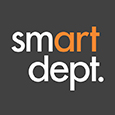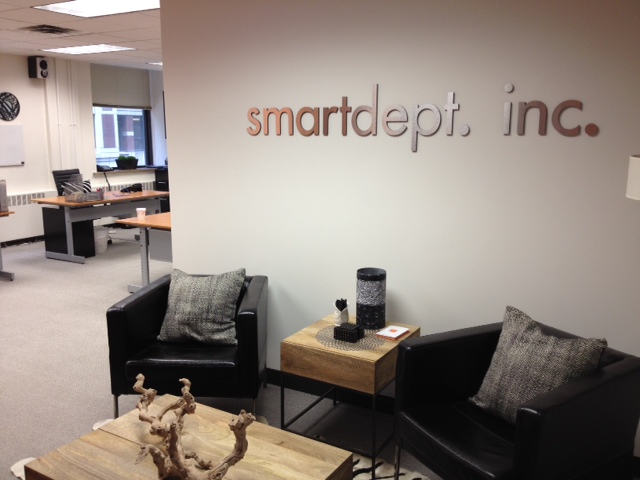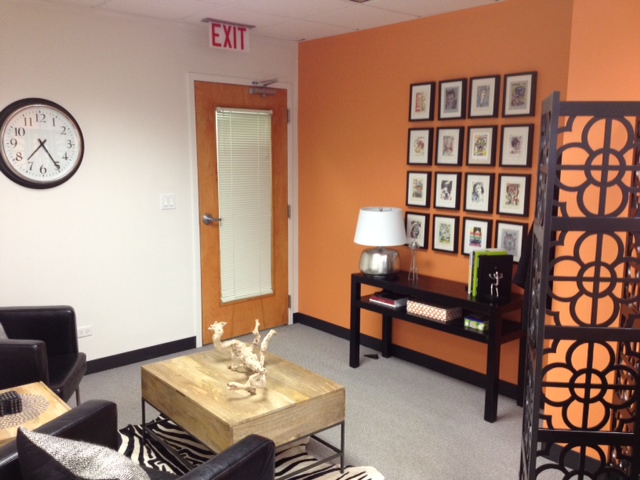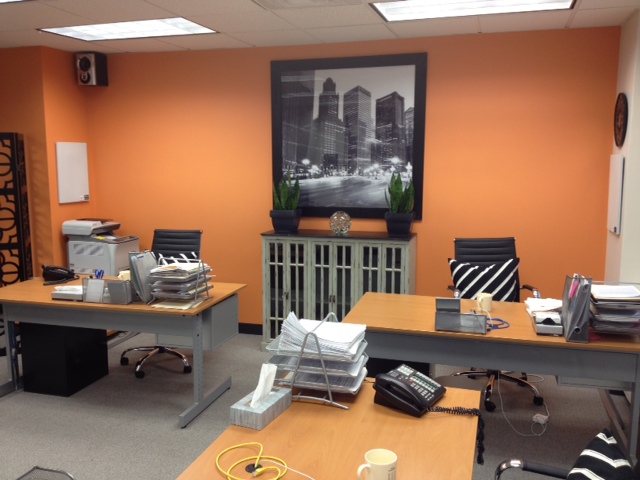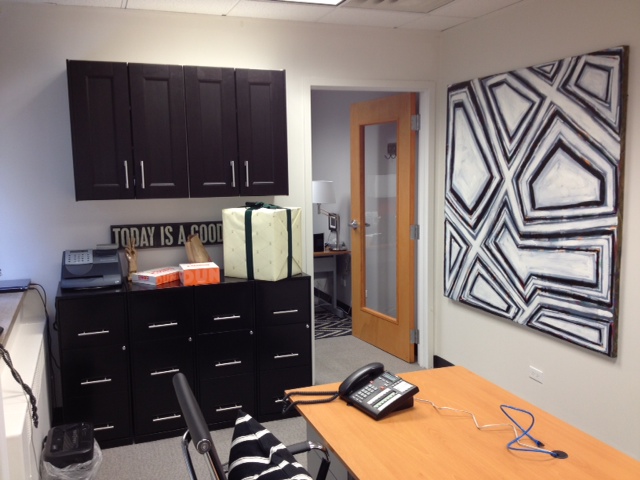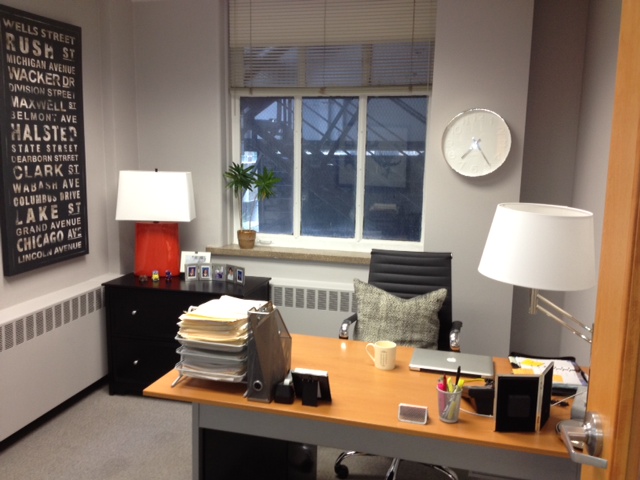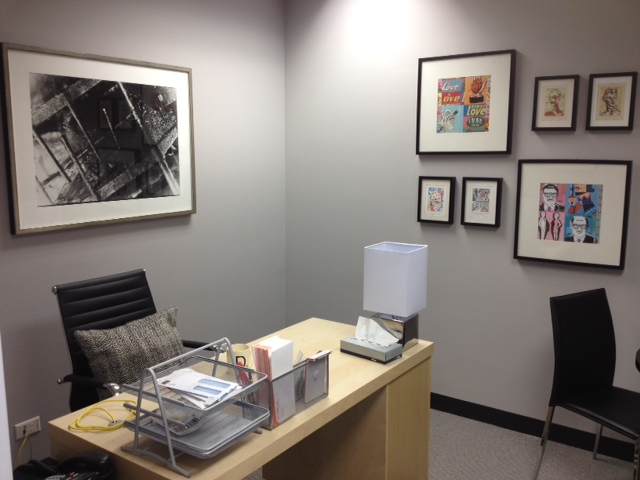smartdept. inc. gets crashed
Yes, it could have been an episode of a program on the DIY Network…if they had a show for redecorating an office, subtracted the hulky host and replaced them with me. Nevertheless, last Thursday afternoon, I sent most of our Chicago team for an afternoon game at Wrigley Field and let them know that they could work from home on Friday because I would be cleaning the carpets and touching up paint in the office. When they left for the game at noon on Thursday, the crash began!
Day One
First, I put our very own Vice President of Operations, Matt Crook, on carpet cleaning duty. Then I grabbed a brush and attempted to stay out of the real painters way. When we finished at 11 pm, on day one, we had clean carpets and freshly painted walls. Per the advice of our crash decorator, Darbie McCollian from Restore Decor, we added new color to our two offices and updated our signature orange wall.
This one started early! After loading the 17′ Uhaul, I was on the road at 6:30 am to fight Chicago traffic and get the new furniture and accessories to the office. This time my brother-in-law, Brandon, was along for the ride. When we arrived, Darbie, Matt, Brandon and I began unloading the truck and getting it all to the 4th floor. Oh yeah, I forgot to mention that I invited our new Controller, Dan Alexander, to join in on the heavy lifting. “Welcome to the company Dan, now grab a box”. At the close of day two it was out with the old and in with the new!
Saturday and Sunday was Darbie’s time to shine. Our crew had been reduced to Michelle, myself, and Darbie because even during a crash, people should still get their weekends off. While Darbie was methodically bringing her design through to the home stretch, Michelle and I were modifying the individual workspaces and reorganizing the files to accompany the new arrangement. By Sunday afternoon, the crash team had put in 40 hours in four days and we were soooo close to being finished….
I arrived at 6 am on Monday to hang two new original pieces of art and change out a file cabinet, which arrived to us with a dent. Mission complete as of 7:16 am on Monday. In four plus days we had cleaned carpets, freshened up the colors on the wall, updated our waiting area, added a company sign, created additional interviewing space, reorganized the individual work spaces to be more comfortable and efficient, created more storage in our mini kitchen area and found room for an additional work station!
Finally, it was time to unveil our surprise crash to a very deserving team…and they loved it!
Thank you to Darbie McCollian at Restore Decor, the crash team of Matt, Brandon, Tim the painter, Dan, Al Grossman at Signs Now in Geneva, and Michelle for coming up with the idea for the crash and most of all to the Chicago Smarties who’s hard work and dedication have ultimately allowed us this luxury.
